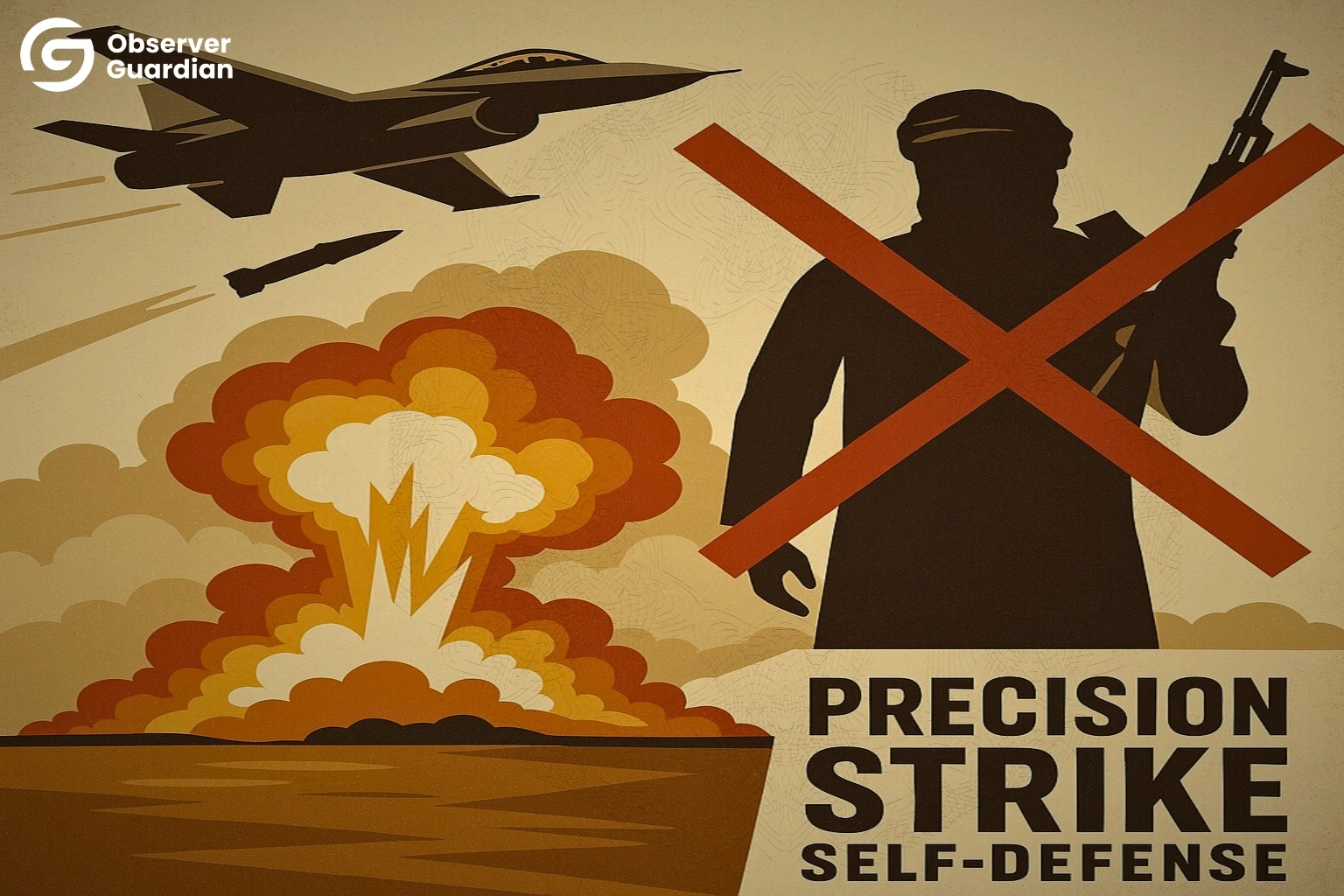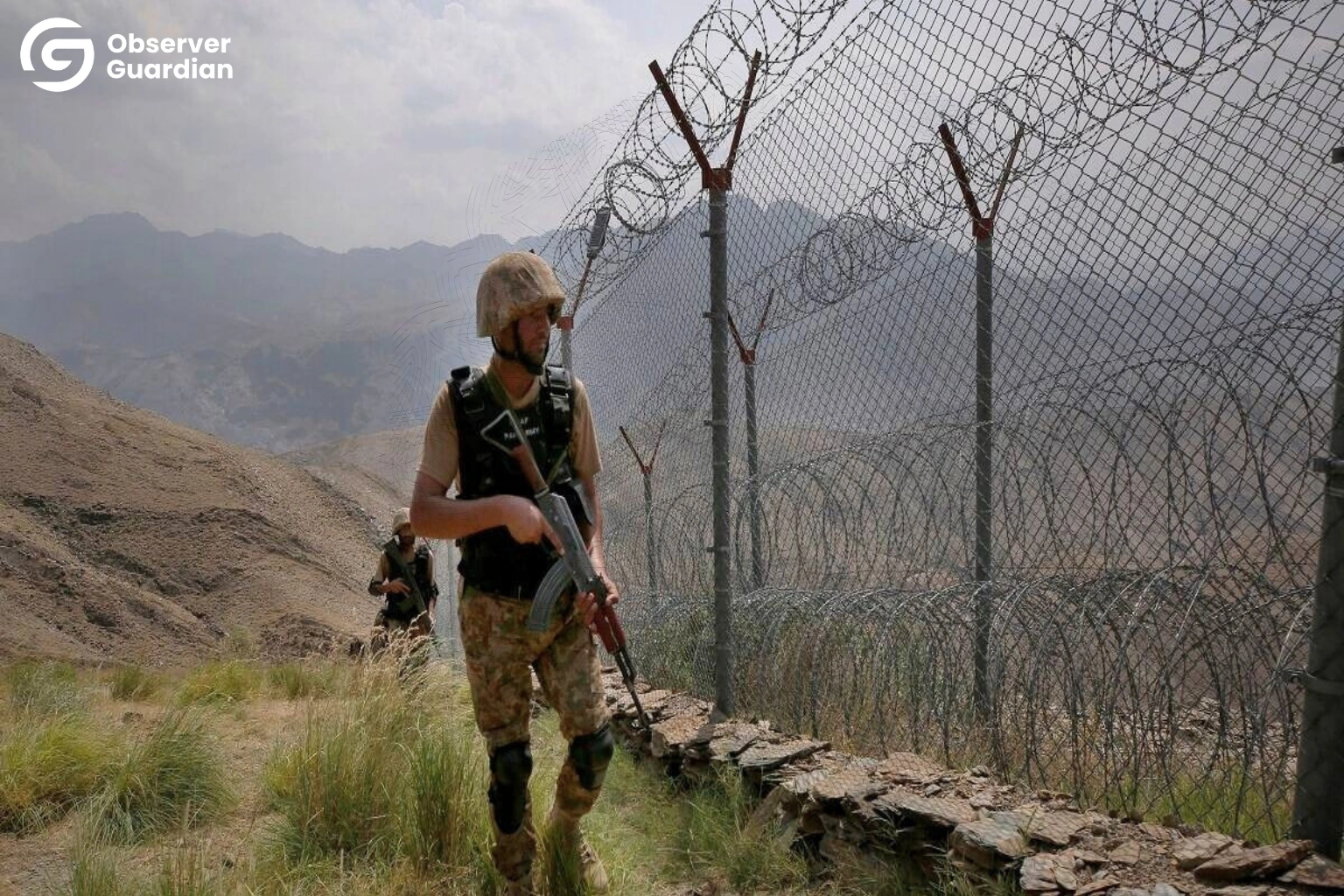On October 17, 2025, Pakistan conducted precision airstrikes targeting key hideouts of the Hafiz Gul Bahadur group in Afghanistan’s Khost and Paktika provinces. These retaliatory strikes followed a deadly vehicle borne improvised explosive device (VBIED) attack in North Waziristan, which resulted in the death of a Pakistani soldier. The operation was not merely a reprisal but part of a calculated strategic effort by Islamabad to enforce the border and respond firmly to any militants crossing into Pakistani territory. This approach signifies Pakistan’s resolve to secure its borders and disrupt militant sanctuaries beyond its frontier.
Strikes Targeting Hafiz Gul Bahadur Militants After Rising Border Tensions
The border areas had been reporting a gloomy picture at least for a few months. Under the Taliban regime the watch TTP-linked militants had increased the infiltration attempts and ambushing. On the day before the attacks, Pakistani security forces stated that they had stopped several attacks and killed over a hundred militants. The North Waziristan bombing was the last drop.
Inquisitors involved the Gul Bahadur group, which had a history of bloodshed and corruption. They had availed themselves of the opportunity that Kabul had done nothing, to reform its position on the Afghan soil. Pakistan was long overdue when intelligence established their presence at Khost and Paktika.
Two accuracy shots were followed. The initial attack was on Wargoon camp in Khost, where it destroyed an estimated 30-40 militants including high commanders. The second had a smaller hideout in Paktika where approximately a dozen were killed. At the end of the day, about 70 militants had disappeared, and some of the command compounds had been reduced to ruins. Pakistani officials were not slow to point out that there were no civilians, women, or children in the compounds, and the propaganda regarding civilian deaths was not true.

Framing the Action
Moreover, Islamabad explained that the operation was an act to exercise its rights to self-defense as provided in Article 51 of the UN Charter. This lawful operation was not aimed at civilians, but it was the frustration gripping Pakistan with the inability (or reluctance) of the Taliban administration to act against militants, who were launching attacks on their territory.
Besides, this time what was communicated was morally, legally and strategically clear. The Afghanistan soil is becoming a platform to attack more, and if Kabul will not act, then Pakistan will do it. The attacks were accurate, intelligence-based and proportionate. Privately one senior security official mentioned that “we are no longer warning, but we are now removing threats.”
It was also important in terms of timing. For months the increasing attacks along the border have been suffered by Pakistan. Also, the two-way diplomatic talks with the Taliban have yielded little than expected. These strikes became a turning point, from the war of defense to the war of deterrence.
Beyond the Battlefield
Furthermore, numbers are not enough to gauge the success of the operation. Yes, there were the key commanders killed and launch sites were demolished, but the greater victory is that deterrence was restored. The attacks were a reminder to hostile actors, militant proxies, and to the sponsors that Pakistan is armed, as well as it wants to take decisive action.
Naturally, the battle of narratives in Islamabad is also present. As it is often predicted, pro-Taliban and RAW-controlled propaganda vehicles will develop fake pictures to blame Pakistan, that it has been killing civilians. However, the initial openness and candor of the government is indicative of good intention, they want to win the information war before the spread of disinformation.
Nevertheless, there is a bigger challenge. The Taliban government has also failed to tighten the belt of the groups that attack Pakistan. Its hesitation is making it lose all the hard-earned diplomatic goodwill. To Pakistan it is not only a security issue, but it is also a political challenge. How long can a nation afford to keep quiet, when suffering from constant aggression due to its neighbors?
Failure of the Taliban to act forced Islamabad to take decisive, lawful action.
A Measured but Firm Response
Moving forward, the operation conducted in Khost and Paktika highlighted a change in the counterterrorism policy of Pakistan. This was not some spur of the moment’s retaliation, but this was an intelligent and legalized strike that was done with precision and discipline. Thus, patience of the state has faded, but its course of action is not in a hurry.
The officials of Pakistan are not confused about the further actions. Instead, intelligence operations will become more basic, surveillance on the frontier will be stricter, and any subsequent attack will be met with an even more rapid reaction. The message is already conveyed. Which is that sanctuaries will cease to exist, if the sovereignty of Pakistan was challenged.
These strikes marked the shift from defensive restraint to active deterrence.
So, it will now be clear in the coming weeks whether Kabul is listening to that message or not. As during the strikes deterrence was restored, now peace will be determined by the Taliban’s actions against the militants to whom they have given shelter. Finally, Islamabad has so far shown ability and decisiveness. It did not do it instinctively, it did it with necessity, and accurately.
⚠ Disclaimer
The views and opinions expressed in this article are exclusively those of the author and do not reflect the official stance, policies, or perspectives of the Platform.








